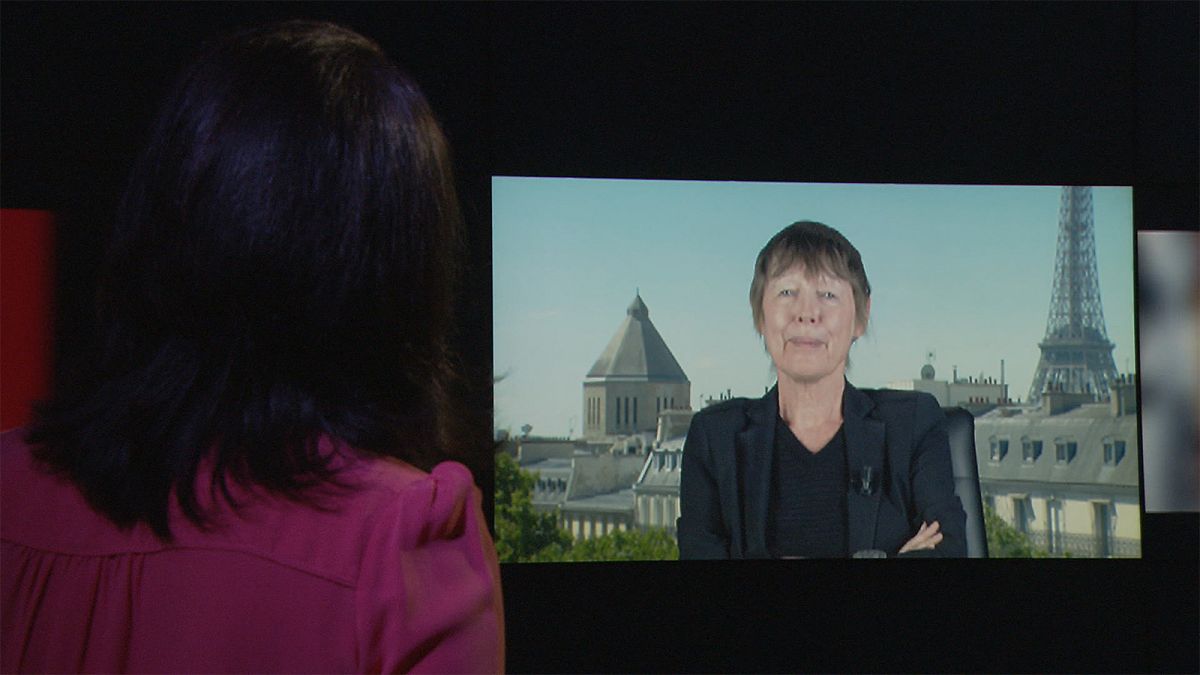Antisemitism researcher Nonna Mayer says while sporadic acts of violence by migrants on Jews grab the headlines, far right extremists are to blame for the vast majority of antisemitic incidents.
Nonna Mayer is Emeritus Director of Research at France's National Scientific Research Centre. She has carried out extensive research into antisemitism in Europe and spoke to Insiders' Sophie Claudet about hate cirmes against Jews and their recent historical context.
Sophie Claudet
Why are we seeing today in France and in Germany an upsurge in violent acts against the Jewish minority
Nonna Mayer
Firstly, it's not just since yesterday. In fact, the rise in antisemitic violence across Europe started in 2000, with the second intifada. Just before that, antisemitic acts were at a residual level. So, there was an impact from the Israeli-Palestinian conflict, with peaks of more than 1,000 acts and threats recorded in France after Operation Defensive Shield and Operation Cast Lead. But, effectively, in 2017 we saw a growth in violence. It was in a context of tensions of identity, of a surge by the radical, populist right, the extreme right, and, above all, social networks become more and more significant and which inflamed the debate. All that led to a spike to in violence that didn't just involve antisemitic acts; it targeted homosexuals, Roma, but also Muslim women wearing headscarves. It was a context which incited violence."
Sophie Claudet
There's also talk of a correlation in Germany between the arrival of refugees coming from countries at war with Israel and the rise in antisemitic acts. Is that something you've observed in your research?
Nonna Mayer
There've been a few isolated acts, but there's no upsurge. We've carried out a survey in five European countries. Effectively, in Jewish communities there's a fear of potential antisemitism among refugees coming from countries hostile to Israel. But, if you take the case of Germany, you see a 92% spike in violent acts in 2017 linked to people from the far right. So it's a bit complex. Let's say there's fear, but for the moment, nothing is proven."
Sophie Claudet
What's happening in the rest of western Europe, for example in the UK, Belgium, to mention some neighbouring countries?
Nonna Mayer
We see a rise in antisemitic acts of aggression all over, since 2000, the year of the second Intifada, with peaks of violence corresponding to Israeli operations in the occupied territories.
Sophie Claudet
So, here again we're seeing the Intifada played out on European soil?
Nonna Mayer
Yes. There's also jihadist terrorism with al Qaeda, and now the Islamic State. But there's also something we don't speak of, which is ordinary, everyday antisemitism. The spitting, the daily insults - which aren't necessarily reported to the police, but which are the most painful and which rot the lives of Jewish people."
Sophie Claudet
Let's talk briefly about eastern Europe, where antisemitism plays out differently, and has different historic causes.
Nonna Mayer
Because in a way, communism froze in time these attitudes at the level they had been at in the 1930s. So there was no act of conscience, this reflection on history that took place in western democracy. There is, moreover, a rise of far-right populism in these countries and the Jew is seen as the ideal scapegoat: I think of George Soros in Hungary, or the rewriting or revision of history in Poland
Sophie Claudet
"Are Jews in Europe today the most threatened minority?
Nonna Mayer
If we look at the small number of Jews in Europe - and France has the largest Jewish community with 500,000 people, but it's still just 0.6% of the entire population - in proportion to their number, it's the minority which file most complaints filed to the police. And not everything is reported.
Sophie Claudet
Is it the most stigmatized minority in Europe?
Nonna Mayer
No. By far the most stigmatized minority in Europe is the Roma."
